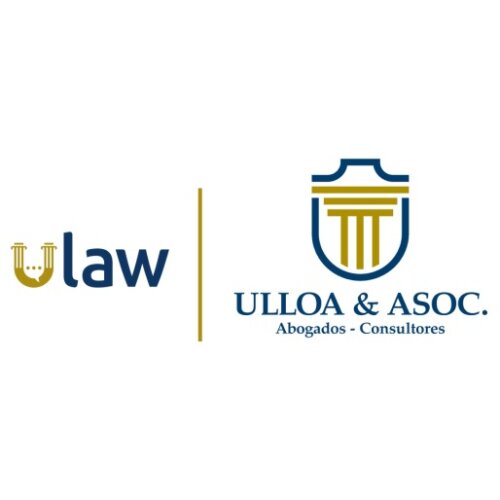Best Tax Increment Financing Lawyers in San Pedro Sula
Share your needs with us, get contacted by law firms.
Free. Takes 2 min.
List of the best lawyers in San Pedro Sula, Honduras
About Tax Increment Financing Law in San Pedro Sula, Honduras
Tax Increment Financing (TIF) is a public financing method that is used as a subsidy for redevelopment, infrastructure, and other community-improvement projects in San Pedro Sula, Honduras. The concept involves capturing the future tax benefits of increased property values within a designated area and using those revenues to fund current investments aimed at improving the area's economic and social landscape. In San Pedro Sula, TIF is geared toward stimulating urban development and revitalizing undervalued districts to benefit both property owners and public institutions.
Why You May Need a Lawyer
Legal assistance in the realm of Tax Increment Financing can be important for several reasons:
- Understanding the Process: Navigating the complexities of TIF can be challenging without a clear understanding of local laws and procedures.
- Project Planning: A lawyer can help in planning and structuring projects eligible for TIF support to ensure all legal guidelines are met.
- Application Assistance: Lawyers can assist with the preparation and submission of TIF applications, ensuring compliance with local regulations.
- Negotiations: Legal representation can be crucial during negotiations with municipalities and other stakeholders to secure favorable terms.
- Dispute Resolution: In case of disputes regarding the interpretation or implementation of TIF agreements, having a lawyer is essential.
Local Laws Overview
In San Pedro Sula, specific regulations govern how TIF can be implemented. Some key aspects include:
- Eligibility: Areas considered for TIF must meet specific criteria, often characterized by economic underperformance or the presence of blighted properties.
- Designation Process: The process for designating a TIF district involves detailed proposals and feasibility studies, requiring local government approval.
- Use of Funds: TIF financing can be used for a wide range of projects, from infrastructure improvements to commercial redevelopment, depending on municipal guidelines.
- Duration: TIF districts have a specified lifetime during which the financing mechanism is active, typically ranging from 15 to 30 years.
- Stakeholder Involvement: The formation and execution of TIF plans often require collaboration between city officials, developers, and community members.
Frequently Asked Questions
What is the main purpose of TIF in San Pedro Sula?
The primary aim of TIF in San Pedro Sula is to stimulate economic growth by redeveloping and revitalizing underutilized or deteriorated areas, boosting property values, and generating more tax revenue long-term.
Who can apply for TIF assistance?
Generally, private developers, property owners, and municipalities seeking to improve specific areas are eligible to apply for TIF assistance.
What types of projects can be financed with TIF?
TIF can fund diverse projects including public infrastructure, commercial and residential development, and improvements to urban amenities.
How are TIF districts chosen?
TIF districts are designated based on criteria such as economic need, potential tax revenue growth, and alignment with municipal development goals.
What role do local governments play in TIF?
Local governments are integral in designating TIF districts, approving project plans, and overseeing the reinvestment of funds sourced from increased tax revenues.
How do TIF impacts property taxes?
Property owners within a TIF district continue to pay taxes as usual; however, increased revenues from assessed property value growth are reinvested into the district's development.
Can TIF be used for residential projects?
Yes, TIF can support mixed-use developments, including residential projects, as part of broader community improvement strategies.
Is there a risk in using TIF for development projects?
While TIF is designed to minimize risk by using potential future tax revenues, project success and actual revenue growth are subject to market conditions and proper project execution.
Who monitors TIF agreements?
The monitoring of TIF agreements is typically handled by local government agencies, often with periodic reporting requirements to ensure compliance and performance tracking.
How can stakeholders benefit from TIF?
Stakeholders, including local communities, businesses, and governments, benefit from enhanced infrastructure, increased economic activity, and improved urban living conditions.
Additional Resources
For more detailed information or assistance, consider reaching out to the following resources:
- City of San Pedro Sula Development Office: Offers guidance on TIF applications and processes.
- Local Chambers of Commerce: Provides networking opportunities and informational sessions on urban development projects.
- Legal Associations: Organizations like the Honduran Bar Association may offer directories of qualified legal professionals specializing in TIF matters.
Next Steps
If you're considering seeking legal assistance for TIF in San Pedro Sula, Honduras, here are some practical steps to follow:
- Research: Begin by gathering relevant information about your project's eligibility and needs related to TIF.
- Consult a Lawyer: Contact a legal professional with expertise in TIF to discuss your intentions and understand your legal rights and obligations.
- Prepare Documentation: Work with your legal advisor to compile necessary documents for application or negotiation processes efficiently.
- Engage with Stakeholders: Reach out to relevant community and governmental bodies to align on objectives and expectations related to your TIF project.
- Stay Informed: Continue to keep abreast of changes in local laws or economic conditions that may impact your project's viability or strategic direction.
Lawzana helps you find the best lawyers and law firms in San Pedro Sula through a curated and pre-screened list of qualified legal professionals. Our platform offers rankings and detailed profiles of attorneys and law firms, allowing you to compare based on practice areas, including Tax Increment Financing, experience, and client feedback.
Each profile includes a description of the firm's areas of practice, client reviews, team members and partners, year of establishment, spoken languages, office locations, contact information, social media presence, and any published articles or resources. Most firms on our platform speak English and are experienced in both local and international legal matters.
Get a quote from top-rated law firms in San Pedro Sula, Honduras — quickly, securely, and without unnecessary hassle.
Disclaimer:
The information provided on this page is for general informational purposes only and does not constitute legal advice. While we strive to ensure the accuracy and relevance of the content, legal information may change over time, and interpretations of the law can vary. You should always consult with a qualified legal professional for advice specific to your situation.
We disclaim all liability for actions taken or not taken based on the content of this page. If you believe any information is incorrect or outdated, please contact us, and we will review and update it where appropriate.

















